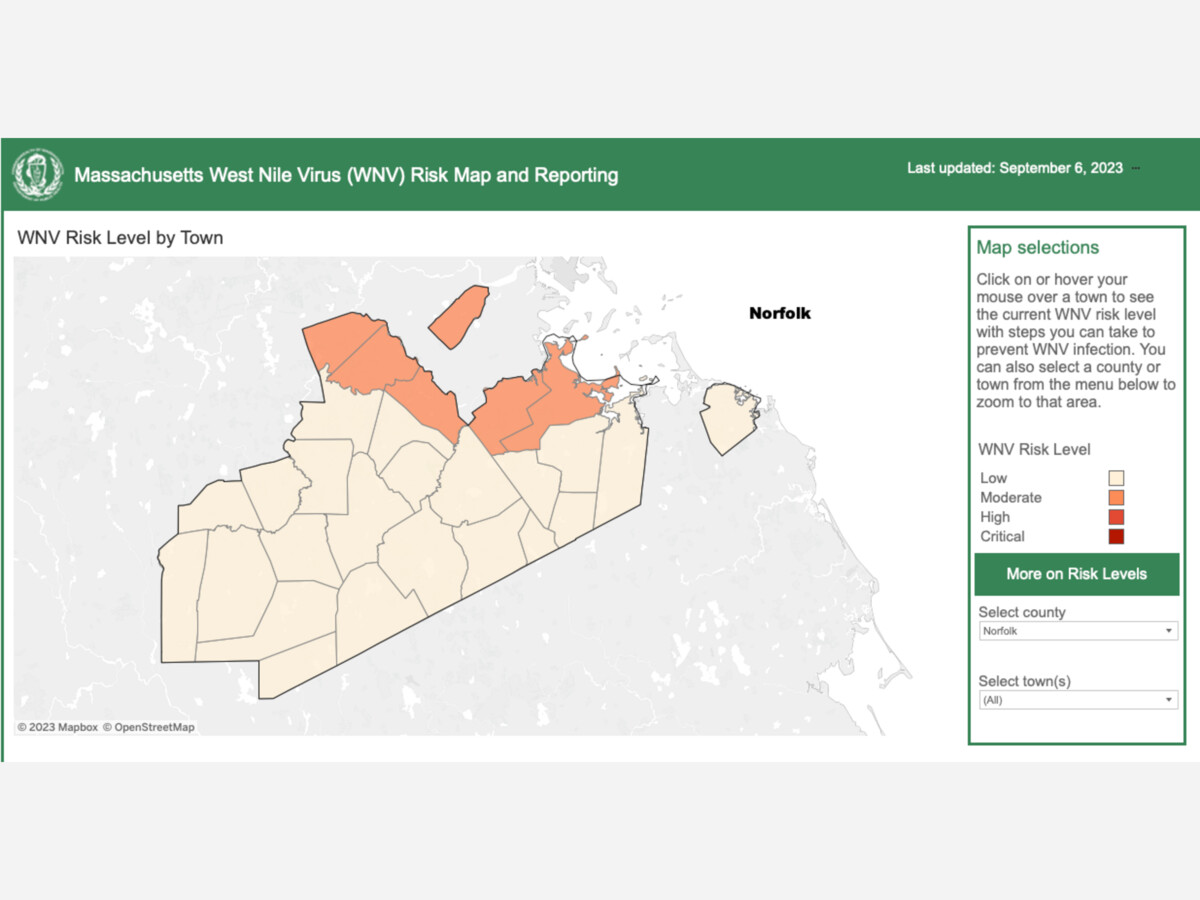Image


According to updates of September 6, 2023 on the Commonwealth of Massachusetts website, Needham, Dedham, Brookline, Wellesley, Milton and Quincy are among the communities in Norfolk County that are currently at moderate risk for West Nile Virus while the rest of Norfolk County, including Westwood and surrounding towns of Norwood, Dover, Canton, Stoughton, Medfield, and Walpole, are at low risk for the virus.
On the state's official website at mass.gov, the risk of individual cities and towns is laid out on an Excel spreadsheet titled, "Arborvirus-Updates -9-6-2023" and map titled, "West Nile Virus (WNV) Risk Level by Town."
Along with the northern communities of Norfolk County, nearby areas in Middlesex and Suffolk counties that are of moderate risk include Boston, Cambridge, Framingham, Natick, Watertown, and Weston.
So far in 2023, there are two known cases of people being infected with West Nile Virus. On August 7th, a 70-79 year old woman from Worcester County had a fever and tested positive for the virus. On August 14th, a 40-49 year old man with symptoms of meningitis also tested positive.
Compared to the few positive tests of the virus in humans, there have many many more cases of positive mosquito samples. The first of 99 positive mosquito tests this year discovered on July 6th in Brookline. More recently on August 30th, one mosquito positive sample was collected in Canton.
West Nile Virus is most commonly spread to people through the bite of an infected mosquito. It is not spread by direct contact with an infected person or animal.
The vast majority of people infected with the virus - 80 percent - will show no symptoms. About 20 percent may exhibit fever, head or body aches, nausea and vomiting. Sometimes they will have swollen lymph glands or a skin rash on their chest, stomach or back. Less than one percent will become severely ill, and can develop encephalitis or meningitis.
To reduce your chance of being bitten: